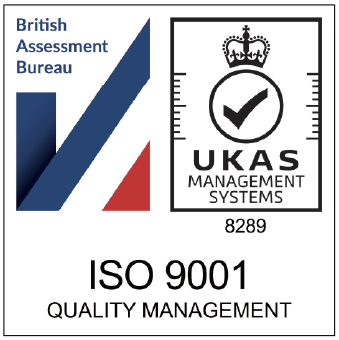Brexit. While it was named ‘word of the year’ by Collins Dictionary back in 2016, for many eCommerce businesses, it is still just as confusing as ever.
In fact, according to research by the British Chambers of Commerce, less than half of UK international traders have applied for the required EORI number, while only 39% have checked to see whether they need to complete customs declarations for their goods.
In defence of eCommerce businesses, 2020 has been a far from usual year. The Covid-19 breakout has thrown many of the rulebooks out of the window. While Brexit was once the headline of every newspaper, it was put on the backburner as the world dealt with more pressing issues.
But, the big day isn’t going anywhere!
All businesses – eCommerce and otherwise – need to prepare now for the changes Brexit will be bringing our way next year…
When will the UK leave the EU Single Market?
The key date for preparing your business for Brexit is 1st January 2021.
This is the day that the UK will leave the EU Single Market and Customs Union. It marks the end of the ‘transition period’ and new trading rules will officially come into effect.
So, it’s important that businesses act well in advance to ensure they are prepared. Otherwise, it’s highly likely you will experience lengthy delays and hold ups when transporting goods between the EU and the UK.
So, exactly what will be changing on 1 January 2021?
Before Brexit, our place within the EU Single Market and Customs Union meant that we could trade goods freely with fellow members. Once customs had been cleared in one country, goods could be moved to other EU countries without tariffs, quotas or taxes.
This is the most significant change for eCommerce businesses.
There is now additional documentation you will need to prepare when trading with EU countries.
Prepare for Customs Declarations
From 1 January 2021 you will need to make customs declarations when both exporting and importing goods to or from the EU.
This can be a complicated process. If you do it yourself, you will need to have compatible software that allows you to submit your declarations through the Customs Handling of Import and Export Freight.
However, many businesses choose to hire a customs broker to arrange this for them. Secure your arrangements now so you are ready to swing into action come January.
Useful links:
How to make customs declarations yourself
Getting someone to deal with customs for you
Check if you need a license or certificate for your products
The rules around what products you can export and import between the EU and UK are also set to be affected.
You will need to get a license, and might have to pay an inspection fee, to import and export certain goods. These include animals, plants, food and agricultural products, chemicals and waste, controlled goods and diamonds – so many areas of trade won’t be affected.
For excise goods such as alcohol and tobacco, importing to the UK and exporting to the EU will be treated the same as the rest of the world.
You might also need to check the labelling on any food and drinks products you are importing or exporting.
Useful links:
Check what import licenses you need
Check what export licenses you need
Get an EORI Number
As of 1 January 2021 every trader will need an EORI number to move goods between Great Britain and the EU.
This number will be required in order for you to clear your customs declarations. If you don’t have it, your goods will not be allowed through.
If you already move goods between the UK and non-EU countries, you may already have an EORI. However, if it doesn’t start with the letters ‘GB’, you will need to apply for a new one.
It should be pretty straightforward to apply and you can do it online. It can, however, take up to a week to arrive. So, make sure you have yours sorted well in advance.
Useful links:
Apply for an EORI number
Check how much duty and tax you will need to pay
New tariffs will apply to goods that are imported to the UK from the EU as of 1 January 2021.
So, it’s a good idea to check now whether you need to prepare for a change in costs.
To do this, you will need to know the right commodity codes for your products. This will ensure you are ready to pay the correct amount of duty and tax at customs.
Useful links:
Check UK trade tariffs from January 2021
How to find the right commodity codes
If you are an FBA Amazon seller…
There will be big changes afoot for those who sell products on Amazon to the EU via Pan-European FBA and the European Fulfillment Network.
As of 1 January 2021, Amazon will not be able to move your inventory and fulfil orders across the UK’s custom border with the EU.
You will still be able to sell to the EU, but you will need to enable Multi Country Inventory. You can then store your inventory in fulfilment centres on both sides of the border to continue selling in the EU.
Useful links:
New Amazon seller Brexit help page for 2021
P.S, is your eCommerce fulfilment process ready to deal with the changes of Brexit? Why not contact 3PL today for a chat about how we can help?
More help and advice from the 3PL blog…
Fulfilling Your Customer Orders Post Brexit | How Will Brexit Affect Online Sellers? | What to Consider When Importing Goods to the UK
Speak to 3PL about your order fulfiment
It’s time to supercharge your business and overtake your competitors. Speak to 3PL today and find out how we can take your ecommerce and B2B fulfilment to the next level.


